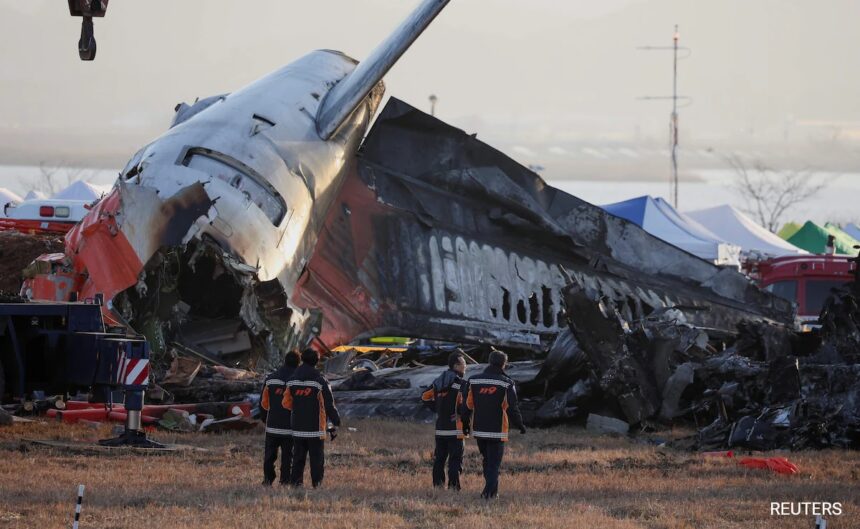Seoul, South Korea: The tragic crash of Jeju Air flight 2216, which resulted in the loss of 179 lives, has left investigators puzzled as the black boxes containing crucial flight data and cockpit voice recordings stopped functioning four minutes before the disaster occurred. The Boeing 737-800 was en route from Thailand to Muan, South Korea, on December 29 with 181 passengers and crew onboard when it crash-landed at Muan airport and burst into flames upon impact with a concrete barrier.
According to a statement released by South Korea’s transport ministry, both the Cockpit Voice Recorder (CVR) and Flight Data Recorder (FDR) failed to record any data during the critical four minutes leading up to the aircraft’s collision with the localizer. The localizer, a device designed to assist aircraft during landings, has been identified as a contributing factor to the severity of the crash.
Investigations into the cause of the data loss are currently underway, with South Korean and US authorities working diligently to uncover the truth behind the tragic incident that has gripped the nation in mourning. Possible factors such as a bird strike, malfunctioning landing gear, and the presence of the runway barrier have been cited as potential causes of the crash.
The pilot of the ill-fated flight reportedly alerted the control tower about a bird strike before aborting the initial landing attempt. However, during the second landing attempt, the landing gear failed to deploy, resulting in the catastrophic crash that claimed the lives of many.
As the investigation continues, memorial sites have been set up across the country to honor the memory of the victims of Jeju Air flight 2216. The nation remains in mourning as the search for answers and closure continues.
Please note that this article is based on information provided by a syndicated feed and has not been edited by NDTV staff.







